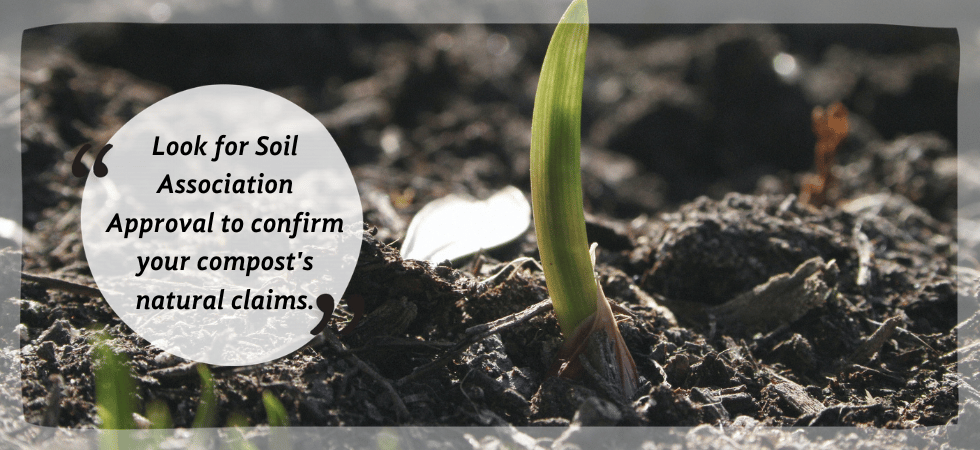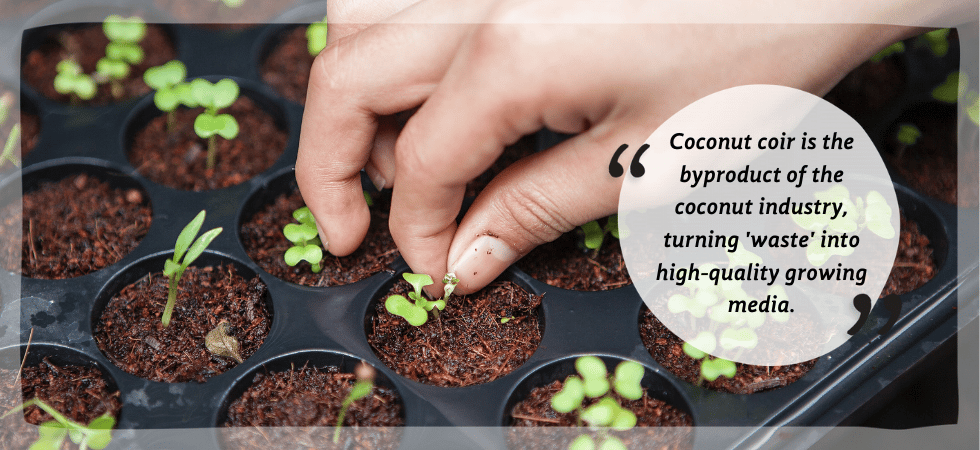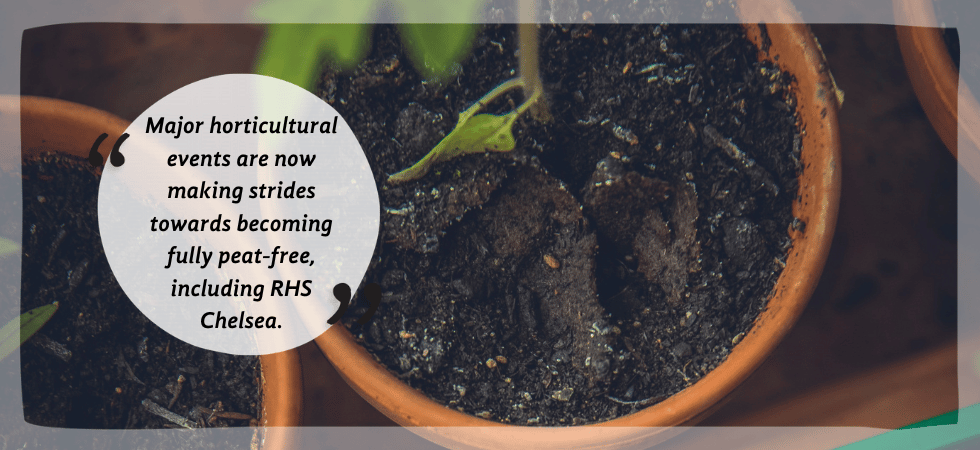Which Peat-Free Compost Is Right For You?
Gardening is pretty eco-friendly, right? We grow plants for pollinators, make ponds for wildlife and set up bug hotels. All great additions to gardens that give something back to the environment. But we could be doing much more to help improve our planet’s carbon-capturing capabilities. Sadly, huge swathes of wetland habitats have been ripped up to meet our demand for peat compost, destroying many of our natural carbon sponges. But with so many types of peat-free compost now available, we can welcome in a sustainable, hopeful future. Here’s what’s on offer in this ever-growing green compost revolution:
Organic compost without the peat
DIY compost
Want to guarantee which ingredients are in your compost? Nothing beats making your own. If you don’t have space for a compost heap, why not try a wormery? We’ve lots of tips and hints in our ‘Your own recycled compost – done right!‘ article.
If you’ve lots of fallen leaves in the autumn and buckets full of patience, leaf mould is known as ‘gardener’s gold’ for good reason. Check out celebrity gardener Monty Don’s leaf mould video on how to make this beautiful organic compost.

 When buying bags of compost, keep an eye out for the product’s organic accreditations. This will help you to recognise – and look out for! – composts you can trust. For example, we’re proud to be Soil Association Approved. They’ve been working hard since the 1960s to make sure anyone accredited by them sticks to their high standards. Any compost you see with their mark you know can be trusted to provide a truly organic product.
When buying bags of compost, keep an eye out for the product’s organic accreditations. This will help you to recognise – and look out for! – composts you can trust. For example, we’re proud to be Soil Association Approved. They’ve been working hard since the 1960s to make sure anyone accredited by them sticks to their high standards. Any compost you see with their mark you know can be trusted to provide a truly organic product.
Peat-free vegan compost
Many vegans prefer to grow their own fruit and veg. Well, as much as possible. Raising bananas in the UK is a bit of stretch! Growing your own means you know exactly what the produce has been grown in, where it has been grown, and can judge how much produce you may end up with at harvesting time.
If you need to buy compost from a supplier, bear in mind that organic compost isn’t necessarily vegan compost. Some composts include manure, wool, chicken droppings and other animal derived products. To make sure a compost is plant-based, like ours, scour the labeling for ingredients. We’ve lots more tips in our Guide to vegan compost.
The best of all worlds: coir compost
• Organic? – tick
• Vegan? – tick
• Sustainable? – tick
Coir compost ticks all the boxes for a peat-free alternative to traditional composts. Here’s why:
Repurposing a waste product
Coco coir is made from coconut husk. It used to be thrown away after coconut milk, water and the tasty white inner fruit had been extracted or the longer fibres were used to make products like ropes and doormats. The original founders of Coco & Coir decided to use the smaller leftover pith to develop a product from their childhood home in India, turning what would have been waste into the spectacular growing medium we know and love.

A renewable source
There is no denying that coconuts are much more sustainable than peat as a source for our compost. Coconut trees grow all year round and can be harvested every two months. In comparison, it takes a whole year for just 1mm of peat to form.
Less weight = less fuel
You may wonder how fuel costs add up when transporting a more ‘tropical’ resource to the UK. We compress our coco coir before shipping, which means it’s lighter to transport than ‘finished’ compost. To turn it into compost, you just need to add water.
Per cubic metre of material, more CO2 would be emitted from transporting a lorry of Scottish bark to us here in England than shipping a container of coir from India. Pretty amazing! (Source)
Avoids landfill
After you’ve used your coco coir compost to grow something, you can wash it and reuse it or mix it into your garden soil to help it retain more moisture without turning soggy.
Check out more suggestions to help keep old compost out of landfill.

Just as good as peat, if not better!
At the end of the day, you don’t need to use peat to grow plants. The proof?
Pick any episode of Gardener’s World, and you’ll see a presenter recommending using peat-free compost. Many of the gardens at RHS Chelsea this year, too, were promoting and using peat-free composts. Peat-free is everywhere, and we love to see it!
Also did you know all National Trust properties use peat-free compost?
Tips from the ‘Green Gardeners Guild’ online advice library
On the lookout for more tips and hints? Our blogs are crammed with advice:
• What organic alternatives to peat moss are available
• Why should I switch to peat-free compost?
• Differences between coco coir peat and sphagnum peat moss
Let us know how you get on with our peat-free compost
We would love to see the results of gardening with one our many blends of peat-free compost.
Please post your pictures and tag @cocoandcoir on Instagram. We’ll credit you for any images we used. Plus you’ll be in with a chance to win some Coco & Coir goodies for your sustainable garden.










